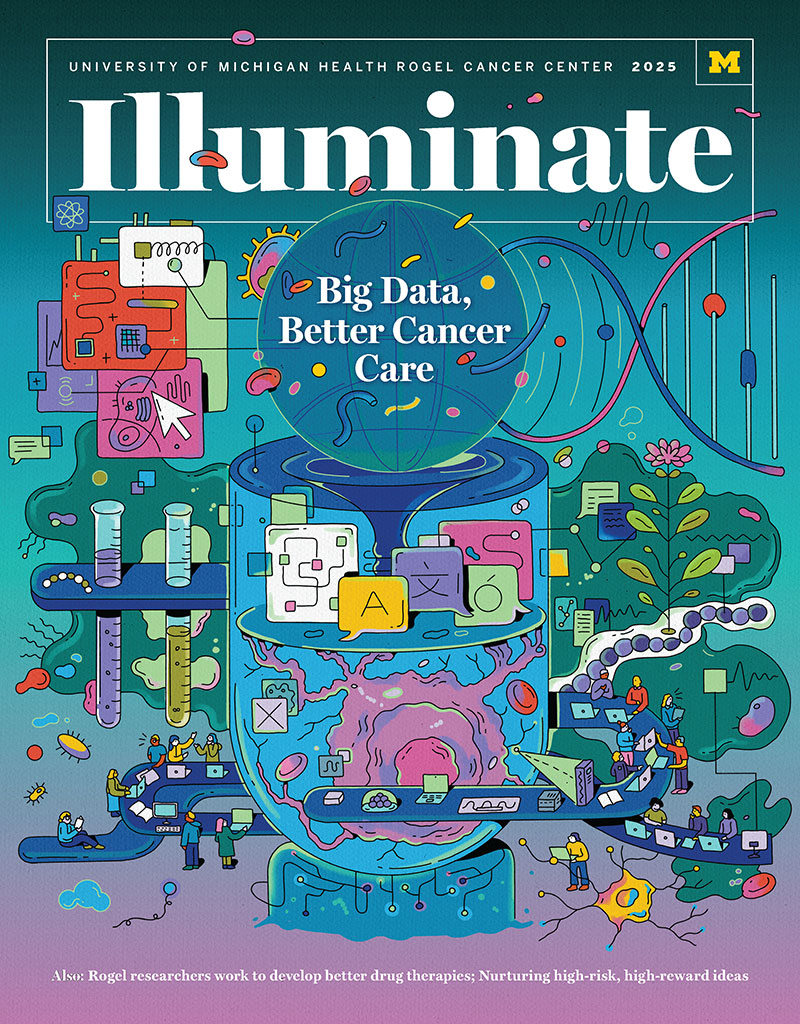Illuminate 2025

Rogel researchers work tirelessly, and over many decades, to develop better drug therapies for patients. Most studies never make to clinical trials. For those that do, researchers point to patience, innovation and a hefty dose of persistence.
The human touch of the care team plays a central role in every patient’s experience, from bedside manner to scribbled notes. But the use of artificial intelligence and machine learning is becoming more common in health care, improving patient care in previously unimaginable ways.
Rogel’s Forbes Institute for Cancer Discovery helps fund bold new ideas with big potential to impact cancer treatment. In less than a decade multiple projects are already bearing fruit.
Most grants funded through the National Cancer Institute’s Specialized Program of Research Excellence, or SPORE, mechanism focus on a specific disease. But in 2023, a team of Rogel Cancer Center researchers landed one of these high-profile grants around a different theme. Their project centers around radiosensitization: how do specific drugs make radiation more effective in locally advanced pancreas, brain and breast cancers?
As we look toward the future of cancer survivorship care, it is vitally important to consider the whole patient, which can best be achieved through multidisciplinary care coordination.
As part of the Next Generation series, meet Eileen Carpenter, M.D., Ph.D., a gastroenterologist who specializes in diseases of the pancreas. Running single-cell RNA sequencing and spatial transcriptomics on biorepository samples, her lab is working to identify biomarkers to guide therapeutic decisions in pancreatic cancer treatment.
As part of our Next Generation series, meet Justin Colacino, Ph.D. His research explores the relationship between pollution and human health, with his lab work examining how everyday exposures to preservatives in food or chemicals in personal care products can impact chronic disease processes.
As part of our Next Generation series, meet surgeon Calista Harbaugh, M.D., M.Sc. Her research focuses on health care quality and access, finding ways to improve health outcomes in colon and rectal cancers through initiatives that improve quality and innovations to ensure equitable delivery.
